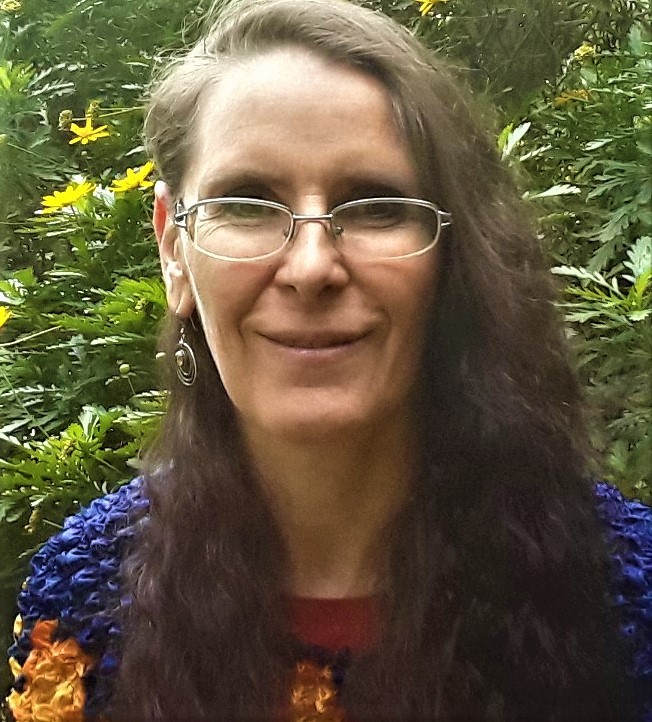Education Provider Voice 5
Je’anna Clements – Founder of a Self-Directed Education Community

Je’anna Clements (BA Psychology Hons) is the co-founder and facilitator at Riverstone Village, which is a Democratic, Self-Directed Education community in South Africa.
Following her degree in Philosophy, Political Science and Psychology, Je’anna worked in the music industry before entering the field of child-participation and environmental rights. She also trained as an Aware Parenting Instructor, counsellor and educational play facilitator.
She went on to co-found Riverstone Village in 2017. She currently offers international support to adults learning to facilitate young people in self-directed education (SDE). Her writing has been published by Save The Children (Sweden), the Children, Youth and Environments journal (Univ. Colorado, USA), and Tipping Points magazine (by the Alliance for Self-Directed Education). She is the author of Help! My Kid Hates School, as well as the Helping the Butterfly Hatch series of books for SDE facilitators.
Why did you decide to set up Riverstone Village?
To provide a sanctuary for young people where their rights could be fully respected. We are the first Democratic Self-Directed Education community in South Africa, and on the continent.
Our vision is a learning community where everyone is equal, everyone is living their lives to the full, and nobody knows what anyone else ‘needs’ to learn. Each person, regardless of age or ‘ability’, is sovereign over their own body, life, and time. Riverstone Village is a place of caring and respect, and mutual support, where we can learn to be 100% ourselves in ways that celebrate other people’s freedom, too. Where we learn how to resolve conflict so that everybody wins. Where we learn how to communicate, so that we can be fully ourselves rather than trying to ‘fit in.’
Can you tell us a bit more about the educational approach at Riverstone Village?
We assume that each young person is the best authority on their own learning needs. Inspired by Sudbury Valley School and the ‘University of Robben Island’, we respect young people’s right to be in charge of their own education. Adults are assistants who help only on request. We are a Democratic Self-Directed Education community.
‘Democratic’ means participatory democracy – every member of our learning community has an equal say in all group decisions, including budget spending and staff appointments.
‘Self-Directed Education (SDE)’ means that each person has full responsibility for their own choice of activities and educational process. We support their unique unfolding, without interference.
Why are you interested in progressive education?
I don’t see SDE as progressive, I see it as discontinuous with all other forms of education. Rather than placing children at the centre of the approach, it acknowledges that young people’s lives are their own and that they can rightfully choose where to place themselves at any given moment – which means they could even choose to participate in other types of educational offerings, but from a place of deep consent which would then make it still SDE.
In this sense SDE is a meta-level educational rights approach that encompasses many possible ways to learn rather than being just another educational approach. SDE is a civil rights issue for me, rather than a lifestyle choice or education option. I believe that deep consent in education is a non-negotiable from a human rights perspective.
In your opinion what are the main challenges of our current school system?
That it is paternalistic and founded on the concept of children as inferior to adults and pays only lip service to their rights – from there all the other problems cascade.
What are state schools doing well?
They sometimes provide hungry children with food.
If you could make changes to the state education system, what would be your top priorities?
Structuring a series of shifts to put the power of choice back into the hands of young people – until they are completely in charge of their own education and can actively shape the state’s offerings to suit their own needs, as well as completely opt out of state offerings as and when they choose to.
Is there anything else you would like to add?
The work of Dr Peter Gray, A.S. Neill, Daniel Greenberg and others offer more than 100 years evidence that young people of all ages can indeed be trusted to self-educate with appropriate adult support, and that long-term outcomes are equal to or better than coercive and manipulative approaches. It can be hard for schooled adults to believe this, in exactly the same way that it was once hard to believe that the earth orbits the sun vs vice versa. If you can’t yet ‘see’ it, you may want to consider changing where and how you’re looking, rather than assuming there’s something to seriously debate.
Read More from Je’anna Clements
The Child’s Right To Education Exploring the Relationship between SDE and the UNCRC: Part 1: The Good News.
SDE and the UNCRC Part 2: Education as ‘Compulsory’
Helping The Butterfly Hatch – A handbook series for SDE facilitators

